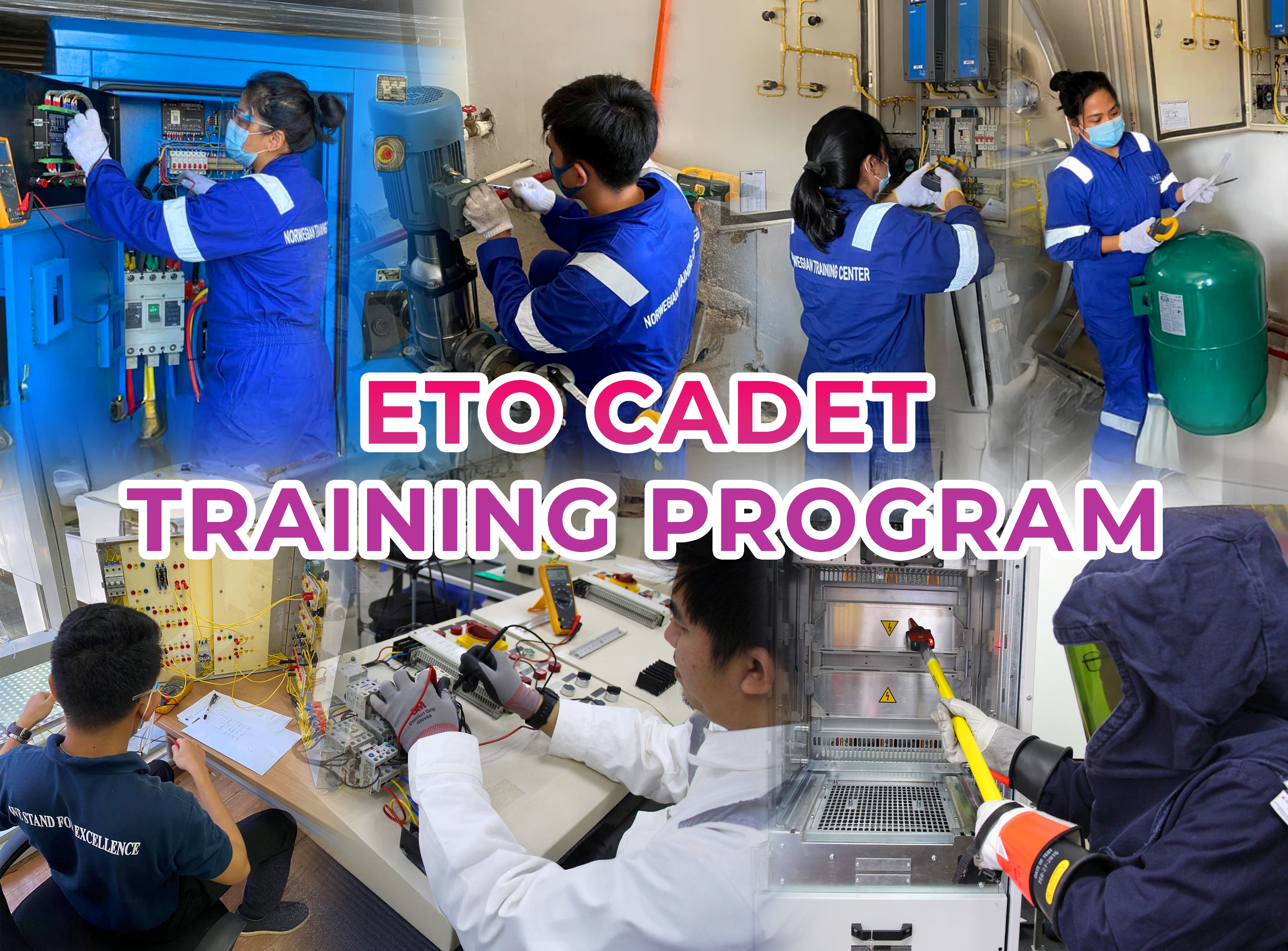NTC Course

Electro-Technical Officers
Electro-Technical Officers
This program deals with the training on specific skills and
competence for the acquisition of required knowledge, understanding and
proficiency leading towards certification as Electro-Technical Officer (ETO) in
accordance with Regulation III/6, Section A-III/6 and Table A-III/6 of the STCW
’78 Convention, as amended.
The training program consist of the following clusters, to
be completed over a period of three (3) months:
Cluster 1. Marine Engineering Systems;
Cluster 2. Electrical and Electronic Systems;
Cluster 3. Automation and Control Technology; and
Cluster 4. Ancillary Trainings.
Each Cluster is subdivided into several Modules to ensure a
structured design and delivery, which shall follow a progressive approach from
the Fundamental Knowledge, Operation and Functionality to the Maintenance and
Repair aspects in order to achieve the intended learning outcomes of this
training program.
This ETO Training Program is in pursuant to Regulation
III/6, paragraph 2.3 and Section A-III/6, paragraphs 1 & 3 of the aforesaid
Convention, and accordingly adheres to the “electronic” and “electrical”
workshop skills training relevant to the duties of an ETO.
OBJECTIVES:
The training program consist of the following clusters
Upon successful completion of this training program, the
participants are expected to have gained the knowledge, understanding and
proficiency needed to perform the tasks, duties and responsibilities relating
to functions: Electrical, Electronic & Control Engineering, Maintenance
& Repair, and Controlling the Operation of the Ship & Care for Persons
on Board at the operational level.
The training modules are designed to enable trainees to meet
and successfully demonstrate the competences required in Section A-III/6, Table
A-III/6 of the STCW Code.
Function 1 – Electrical, electronic and control engineering
at the operational level
- Monitor the operation of electrical, electronic and control
systems;
- Monitor the operation of automatic control systems of
propulsion and auxiliary machinery;
- Operate generators and distribution systems;
- Operate and maintain power systems in excess of 1,000 volts;
- Operate computers and computer networks on ships;
- Use of English language in written and oral form; and
- Use of internal communication systems.
Function 2 – Maintenance and repair at the operational level
- Maintenance and repair of electrical and electronic
equipment;
- Maintenance and repair of automation and control systems of
main propulsion and auxiliary machinery;
- Maintenance and repair of bridge navigation equipment and
ship communication systems;
- Maintenance and repair of electrical, electronic and control
systems of deck machinery and cargo-handling equipment; and
- Maintenance and repair of control and safety systems of
hotel equipment.
- Ensure compliance with pollution-prevention requirements; and
- Application of leadership and teamworking skills.
COVERAGE:
The training program consist of the following clusters and module:
Cluster 1: Marine Engineering Systems
- Module 1: Thermodynamics for Marine Application
- Module 2: Auxiliary Machinery
- Module 3: Engine Technology
- Module 4: Marine Refrigeration and Air Conditioning Systems
- Module 5: Marine Electro-Technology
- Module 6: Electrical Equipment, Schematics and Safety
- Module 7: Generators and Distribution Systems
- Module 8: Ship’s Communication Systems and Bridge Navigation
Equipment
- Module 9: Marine High Voltage
- Module 10: Electro-Hydraulics
- Module 11: Electro-Pneumatics
- Module 12: Programmable Logic Controllers with Networking
- Module 13: Instrumentation, Automation and Alarm Systems
Cluster 4: Ancillary Trainings
- Module 14: Use of English in Written and Oral Form
- Module 15: Ensure Compliance with Pollution Prevention Requirements
- Module 16: Leadership and Teamworking Skills
Entry Requirement / Target Group:
- Not more than 30 years old prior to start of the program
- Graduates of BS Electrical Engineering, BS Electronic & Communication Engineering, BS industrial Technology (Major in Electrical / Electronics / Automation / Mechatronics)
- 2-3 years work experience related to profession
- Preferably PRC Board Passer ( with COP in Basic Training is a plus)
- Medically and Psychologically Fit
Related Course(s)
Featured Course(s)


